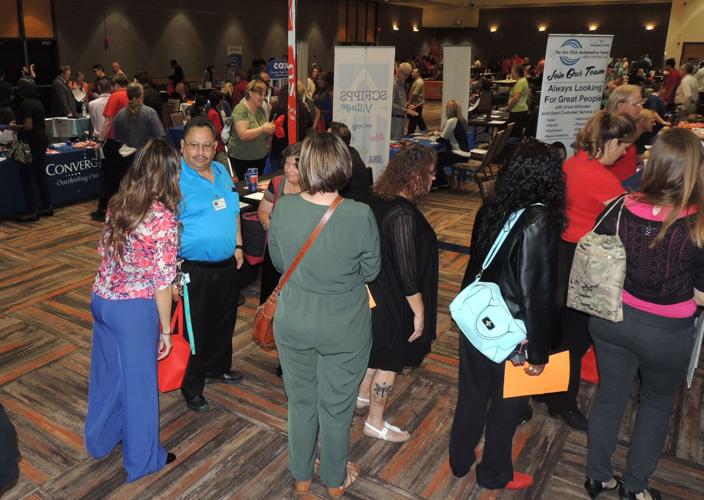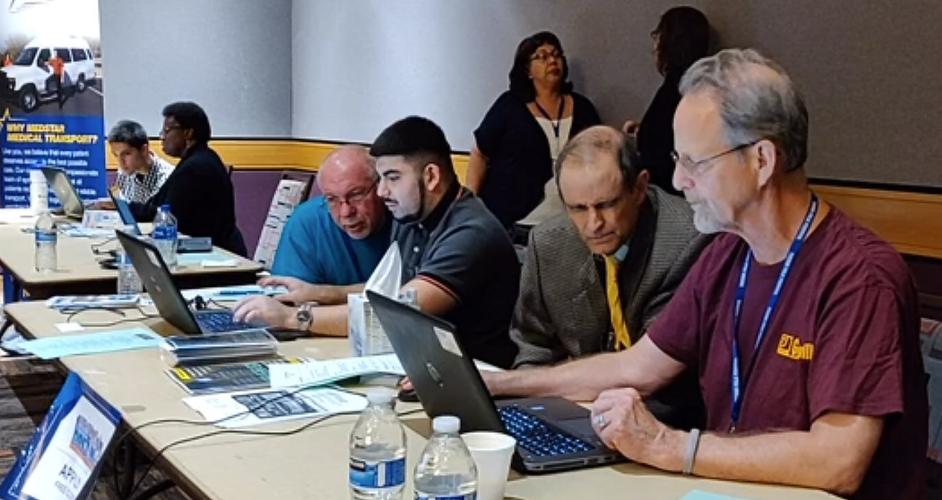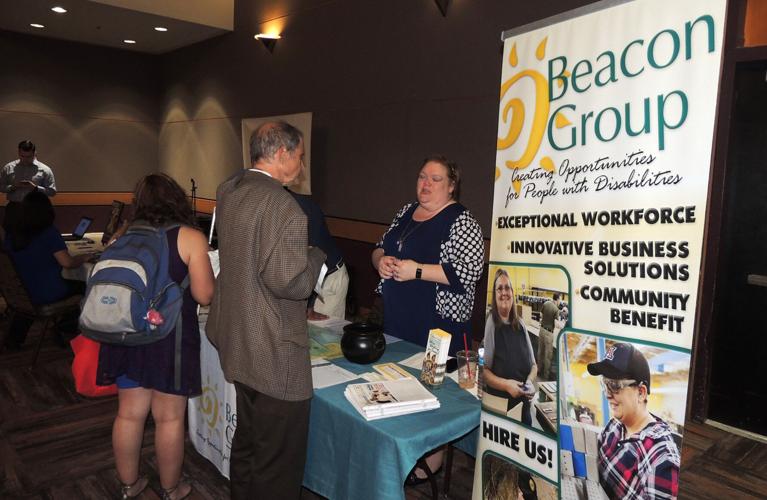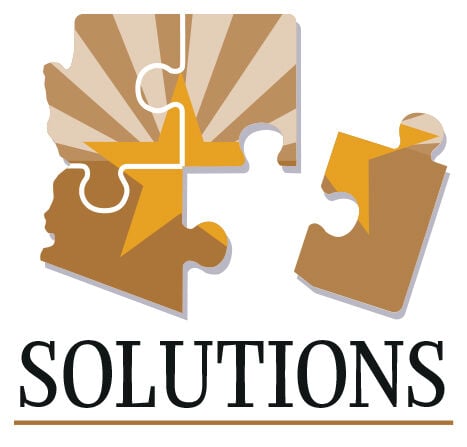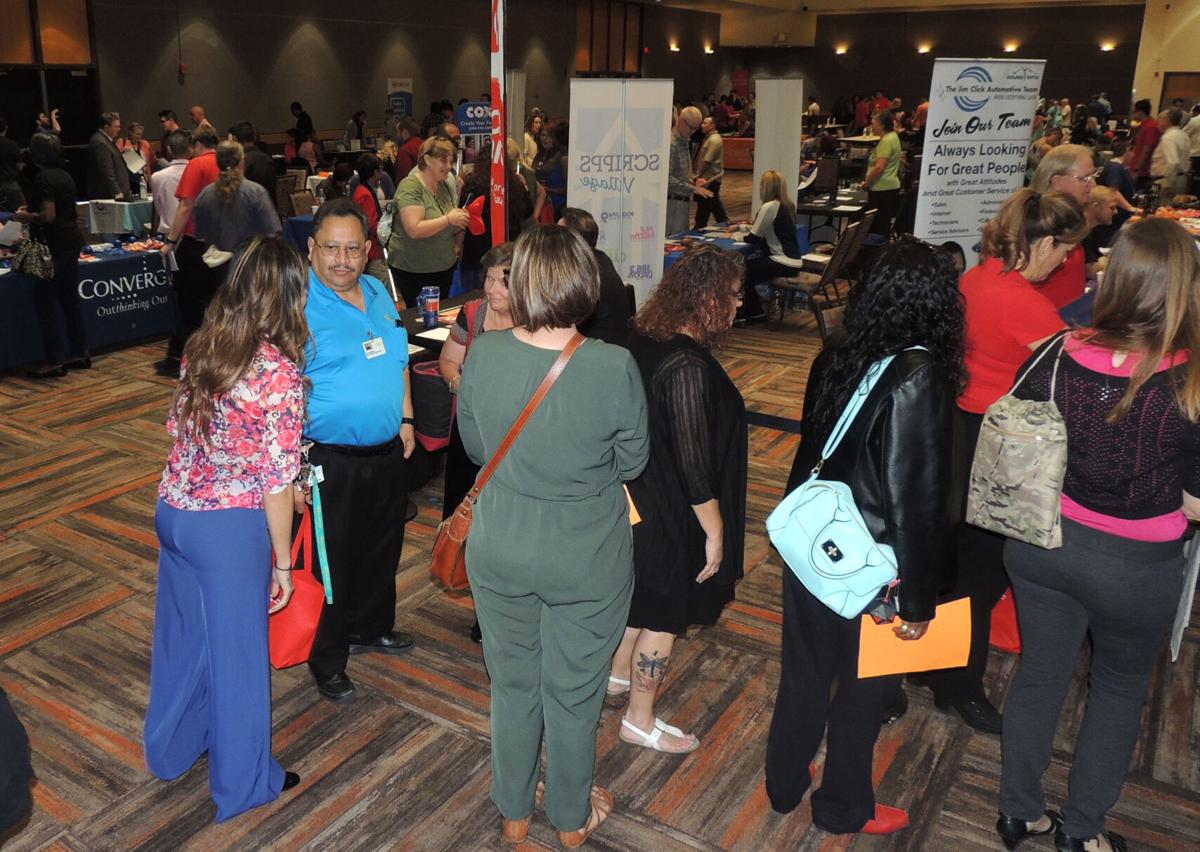Southern Arizona's largest job fair for people with disabilities is returning to an in-person format in October, with organizers hoping for a robust turnout of employers and job seekers.
The Building a D.R.E.A.M. Job Fair was started years ago by an employee of the nonprofit Beacon Group, which works to create opportunities for people with disabilities.
The idea was to bring together multiple agencies for a resource and job fair, leveling the playing field so that job seekers with physical or intellectual disabilities could get in front of some of Southern Arizona's largest employers, said committee member Matthew Flores, director of marketing for Goodwill of Southern Arizona.
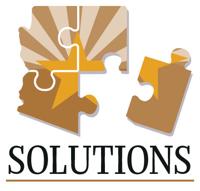
From there, Building a D.R.E.A.M. — Disability Rehabilitation Employment Awareness Month, which takes place in October — expanded to an annual and then bi-annual event, with the largest fair netting upward of 600 attendees.
But like most things in 2020, the spring job fair was a victim of the pandemic, with organizers canceling the event and turning their attention to October's fall fair, said planning committee co-chair Jody Gardner, who works as the associate director of employment services at Banner-University Medical Center.
"We quickly shifted to a virtual event in fall 2020, and we've had really good success with that," Gardner said. "But the feedback is that employers and job seekers miss meeting face to face. They miss that interaction and opportunity to connect."
The planning committee was all set for a return to in-person in 2021, but a spike of COVID-19 cases in Pima County forced the event back online.
Co-chair Jeff Grobe, executive director at Café 54 and Our Place Clubhouse, joined the planning committee in 2020 and said it struck him right away how all the parties involved were already connected to employment services for people with disabilities. Café 54 and the clubhouse are programs under the Coyote Task Force, which provides employment-focused services for adults recovering from mental health issues.
"It's volunteer-based, so it's not like there's anything in it for any individual person or organization," he said of the committee. "We're just really responsive to wanting to find opportunities for people with disabilities and connect them with employers."
While there's no formal system to track job connections, Grobe said the committee often hears stories about people who receive second interviews or are offered positions after connecting with an employer at the fair.
"In a time where so many employers are struggling to find people to fill positions, we have this group of individuals who just really want to work," Grobe said. "This is really just about connecting really good employers in Tucson with really good people."

At the Building a D.R.E.A.M. job fair, prospective employees can work on resumes and fill out job applications in the computer lab, often with assistance from a job coach or volunteer.
"Changing the conversation"
Prior to the pandemic, the event included pre-fair workshops to prepare job seekers, including a fashion show of interview outfits and panels of speakers.
With those resources now posted on the job fair website, committee member Flores said the group gathered links to videos and related content to assist job seekers in having confidence, understanding the right thing to wear and having their résumés and elevator speeches ready.
Some of the work on the committee and with employers and job seekers involves changing the narrative, Gardner said.
"Part of this is trying to change the conversation for people with disabilities from 'Do you want to work?' or 'Are you able to work?' to 'What kind of work do you want to do? What are you passionate about?'" Gardner said.
"For most people, wanting to work is a given because we have to keep food on the table. We've done a disservice by telling people with disabilities that they can't work. They're dedicated, enthusiastic and driven, and we just want to help them meet their goals."
The fair sees multiple repeat employers, who send representatives to every event, including Pima County Juvenile Court and Goodwill.
Juvenile Court had been participating in the fair for years before the pandemic, said senior human resources analyst Sonia Torres.
"It's always organized, whether it's virtual or in-person, but the opportunity to attend in-person makes a world of difference," Torres said. "I have had tons of positive experiences at these career fairs. The interactions with people are just wonderful."
Torres said this fair is a good fit for Pima County Superior Court and Juvenile Court, as they both have a wide array of job opportunities that don't depend on a person's qualifications.
"We look at flexibility in a variety of positions that we have," she said. "I'm sure there's a place for them. There's a variety in the courts, so we tend to have something to fit everyone’s needs."
Torres said she's enjoyed the past two virtual events, but is looking forward to the return of the in-person gathering and looking for passionate people to join the court's ranks.
"Here at the courts, we're very passionate about what we do. When I walk through the halls here at Juvenile Court, people are here for a reason. They want to help the community and you can feel it," she said. "This fair focuses on those with disabilities and special needs, and with the courts — especially with Juvenile Court — our mission is to protect the community and rehabilitate, so they coincide a lot."

A representative of The Beacon Group talks to job seekers at the Building a D.R.E.A.M. Job Fair in Tucson in 2018. The Beacon Group is one of many employers that will be attending October's fair at the Tucson Convention Center.
Countering stigma and discrimination
Goodwill's Lisa Peele has attended every D.R.E.A.M. job fair since she came on in 2016. A senior specialist in employee services and support, Peele said Goodwill had been sending a representative to the fair for years before her arrival.
"Many of the candidates that attend the job fair, we have the types of positions they're looking for," Peele said. "Maybe they need part-time because they're receiving some Social Security money and can only work a certain number of hours, or maybe they need some assistance completing the job."
D.R.E.A.M. doesn't discriminate against any type of disability, be it physical or mental, Peele said, which opens the door for other types of populations.
"Maybe a person hasn't worked in a long time and they're rejoining the work force, or maybe they were formerly incarcerated and looking for work. There's so much stigma and discrimination out there still. People see a big gap with no employment and they don't want to hire you," she said. "This is bringing people an opportunity that they may not have gotten somewhere else."
Peele said Goodwill and other D.R.E.A.M. employers give opportunities to all individuals, including those who may be overlooked by other employers.
"Those types of individuals often end up being some of our best employees and stay for several years and end up growing with the company," she said. "That's why we get such a large turnout at these job fairs: They know we're here to help."
D.R.E.A.M. committee member Sara Hernandez said the fair sees a diverse group of applicants in terms of age, experience and more. Hernandez, who works as a complete care specialist at Banner, said the fair is always looking to add employers to its roster.
"For people who have a passion for helping the disability community, this is a great job fair for them, too," said committee member and Beacon Group employee Mitch Escrit.


